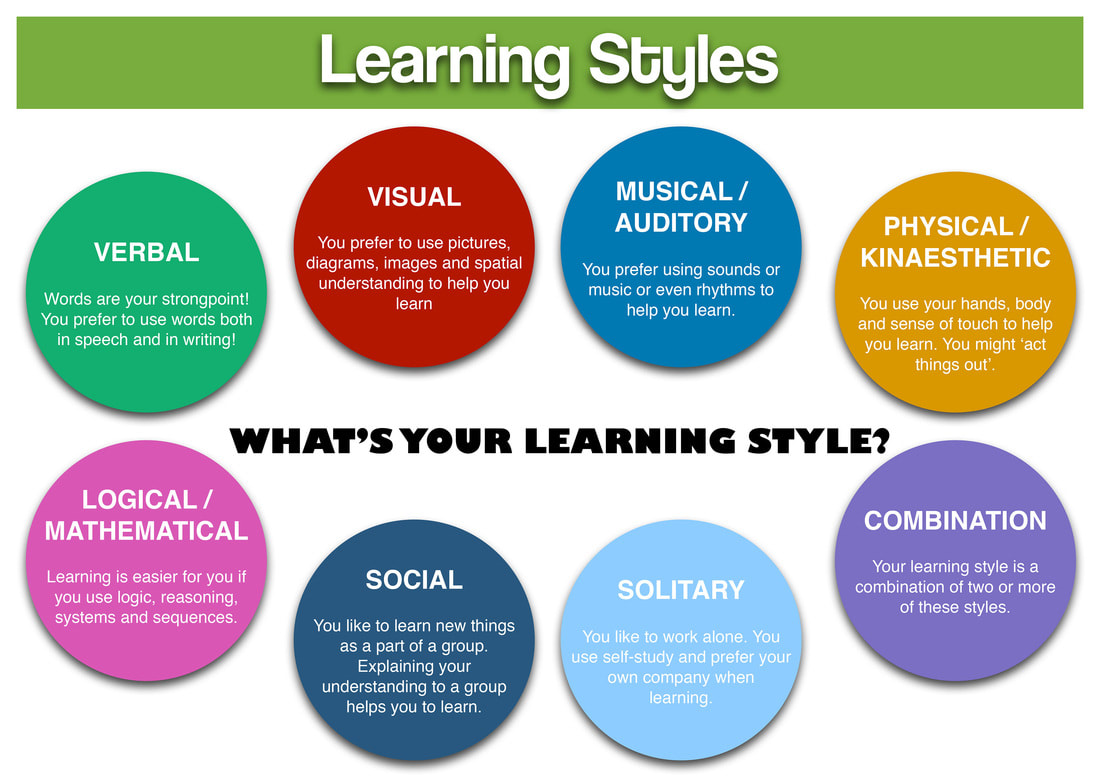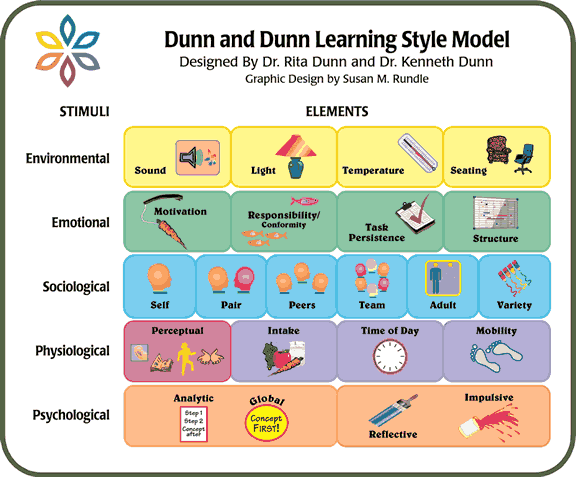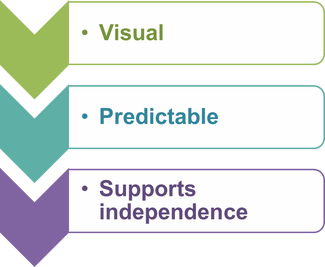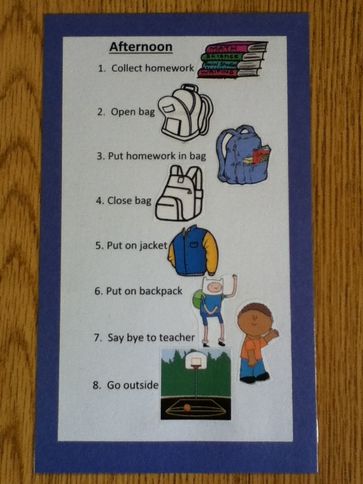EVERY INDIVIDUAL LEARNS DIFFERENTLY.
TEACH THE WAY THEY LEARN.
VISUAL |
|
Dunn and Dunn Learning Structures
The learning environment is very important for individuals who also have Sensory Processing Difficulties, or challenges with non structured approaches. Dunn and Dunn model shows the impact of the environment that can affect the individual during learning. By structuring and adjusting the environment to meet the needs of the learners can greatly help them process better. Go to the Sensory Processing Page to better understand how it can affect these areas, eg. time of day, lights, temperatures, negative reinforcement by peers, etc.
TASK ANALYSIS
|
Task analysis is the process of breaking a skill down into smaller, more manageable components.
Once a task analysis is complete, it can be used to teach learners with ASD a skill that is too challenging to teach all at once. |
STEPS TO GUIDING USING
TASK ANALYSIS
1. DEMONSTRATE
- Show how to do the steps slowly
2. PRACTICE WITH HAND OVER HAND
- Child's hands can overlap Adult, or Adult hand can overlap child's to provide guidance
3. PRACTICE WITH VISUAL SUPPORT
- Provide an initial basic visual guide as you practise along
4. PRACTISE AND MASTER STEP 1...STEP 10...PROGRESSIVELY
-Wean hand over hand to hand prompting according to the steps learnt
-Wean prompting to independent attempt according to the steps learnt
5. MASTERY OF SKILL (SPOTLIGHT BUILDS CONFIDENCE)
-Mastery of Skill is 90-100% of independent attempt without prompting
TASK ANALYSIS
1. DEMONSTRATE
- Show how to do the steps slowly
2. PRACTICE WITH HAND OVER HAND
- Child's hands can overlap Adult, or Adult hand can overlap child's to provide guidance
3. PRACTICE WITH VISUAL SUPPORT
- Provide an initial basic visual guide as you practise along
4. PRACTISE AND MASTER STEP 1...STEP 10...PROGRESSIVELY
-Wean hand over hand to hand prompting according to the steps learnt
-Wean prompting to independent attempt according to the steps learnt
5. MASTERY OF SKILL (SPOTLIGHT BUILDS CONFIDENCE)
-Mastery of Skill is 90-100% of independent attempt without prompting
ScaffoldingWhat is Scaffolding?
Instructional scaffolding is a process through which a teacher adds supports for students in order to enhance learning and aid in the mastery of tasks. The teacher does this by systematically building on students' experiences and knowledge as they are learning new skills. |
Please DO NOT print out for DISTRIBUTION/ SALE or infringe copyrights. These are only used to share knowledge purposes.
This resource site includes inclusive services for all types of professionals. The reviews are from parents who shared their positive experiences with them. Do note that every individual is unique, and not every service provider is one size fits all. Negative feedback will not be displayed but do contact us if you feel that there are concerns, and we will decide to review for removal on a case-by-case basis. If you have come across any inclusive services that could benefit another family do contact us to place their services for other parents to find. Thank you people :D
Facebook Advocacy:
(Updated events and sharings will be also available at
www.facebook.com/ANeurodiversityRoadOfLoveSg/
This resource site includes inclusive services for all types of professionals. The reviews are from parents who shared their positive experiences with them. Do note that every individual is unique, and not every service provider is one size fits all. Negative feedback will not be displayed but do contact us if you feel that there are concerns, and we will decide to review for removal on a case-by-case basis. If you have come across any inclusive services that could benefit another family do contact us to place their services for other parents to find. Thank you people :D
Facebook Advocacy:
(Updated events and sharings will be also available at
www.facebook.com/ANeurodiversityRoadOfLoveSg/
Copyright © 2017 NEURODIVERSE INCLUSIVE CENTRAL E-NETWORK . ALL RIGHTS RESERVED



